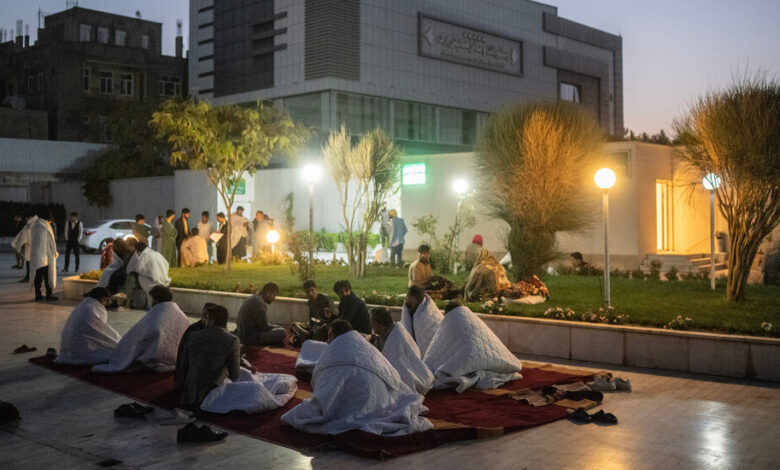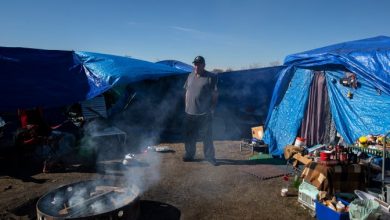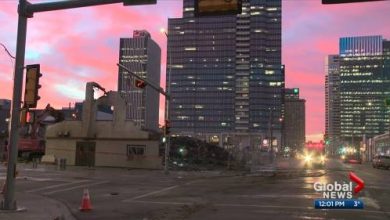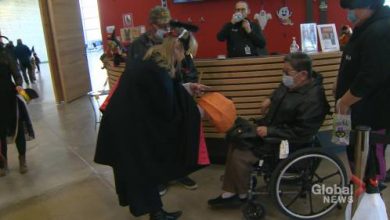Afghanistan Struck By Large Quake Days After Deadly Temblors

A powerful earthquake struck Herat Province in Afghanistan near the border with Iran early Wednesday, several days after two major quakes in the same area killed more than 1,000 people.
The magnitude-6.3 temblor struck northwestern Afghanistan at 5:22 a.m. at a depth of about six miles, according to the U.S. Geological Survey. The epicenter was just outside Herat City, the provincial capital and one of the country’s cultural and economic hubs.
At least 120 people were injured in the quake on Wednesday and one was killed, according to Dr. Mohammad Asif Kabir, head of Herat Province’s emergency health committee. Most of those hurt were from Herat City and Zinda Jan, the district most badly affected on Saturday.
The latest quake sent people in Herat City running out of their homes for the second time in five days. Thousands of others had already been sleeping outside in tents, or in makeshift shelters made of blankets and tarp, still terrified from the dual quakes that rocked the area on Saturday.
“When my body started shaking I realized it was another quake,” said Nadar, 52, who goes by one name and who had been sleeping in his yard. “Everyone sleeping outside was shouting and screaming.”
Inside the Arg Hotel, a team of New York Times journalists felt the walls shake violently and the building sway. Bright lights illuminating the hallway flickered and went dark as guests ran out of the building. When the shaking subsided, parts of the concrete walls had broken off, and pieces of the ceiling in some rooms had crashed to the floor.
Mohammad Reza, a doctor in Herat, had been sleeping in his house, hoping the aftershocks from Saturday’s quakes had finally subsided.
“I thought that it was all over,” said Mr. Reza, 28. When he woke to the walls shaking, he sprinted from the house barefoot, through the yard and to the alley outside.
“I was so scared and shocked, now I feel dizzy and I’m just throwing up,” he added.
The Saturday quakes, both of which were also 6.3 magnitude, caused mud-brick homes in several districts to come crashing down. At least seven tremors followed.
There was optimism that the Wednesday quake would be less destructive. The buildings in Herat City are mostly made from concrete — not mud-brick, as in districts that saw the worst devastation on Saturday — and many people were sleeping outside.
Still, at Herat’s regional public hospital, ambulances raced in and out of the gate Wednesday morning carrying dozens of injured people.
Outside the intensive care unit, dozens of doctors and nurses stood at a makeshift triage station and swarmed the ambulances as each new wave of patients arrived. They bandaged bloodied arms and legs, rolled out IVs on rickety metal stands and tried to calm people crying with fear as their loved ones were treated.
One man in a dirt-covered orange salwar kameez, a traditional loosefitting garment, carried a young boy to the triage station and laid him down on the pavement. After the initial quake Saturday morning, they had come from Nawabad village, on the outskirts of Herat, in an Army Ranger vehicle.
As doctors inserted an IV into the boy, the man stood up in tears and let out a shriek.
“There’s nothing left!” he cried, before pleading with hospital staff members to let him check the morgue for other relatives who were still missing from the weekend disaster, which leveled homes in his village.
“Please,” he begged. “Just let me go and check the dead bodies.”
For many in Herat, the quake on Wednesday was a terrifying reminder of the unease that continues to plague the city after the initial quake last weekend.
Along the grassy median of a main road running through the city, dozens of people lay inside makeshift tents they had constructed with clothes, rugs and string. Many had slept there since Saturday, fearing the aftershocks that have rolled through the city.
Mohammadi Yasin, 22, set up his campsite with his siblings and other relatives on Saturday afternoon, heeding the advice of his neighbors, who warned about possible tremors after the initial quakes.
“It’s not the safest place, but it’s the only one that we could find,” Mr. Yasin said, his 11-month-old nephew asleep in the shade of a tree next to him. “We don’t have a yard, and we couldn’t stay in alleys outside our house — there were big buildings around it; we were afraid they would fall down,” he added.
His family had returned to their two-story home nearby on Tuesday night, thinking the crisis was finally over. Then, early Wednesday morning, they were jolted awake as the ground shook violently beneath them. His two sisters screamed in fear as they fled the house for the alleyway, their drinking glasses tumbling off the shelves of their kitchen and smashing onto the ground.
Now, he said, his family plans to stay on the median for at least a week.
“We are not feeling safe; the earthquakes are happening all around us,” he said. “It might happen again.”
Andrés R. Martínez contributed reporting.




